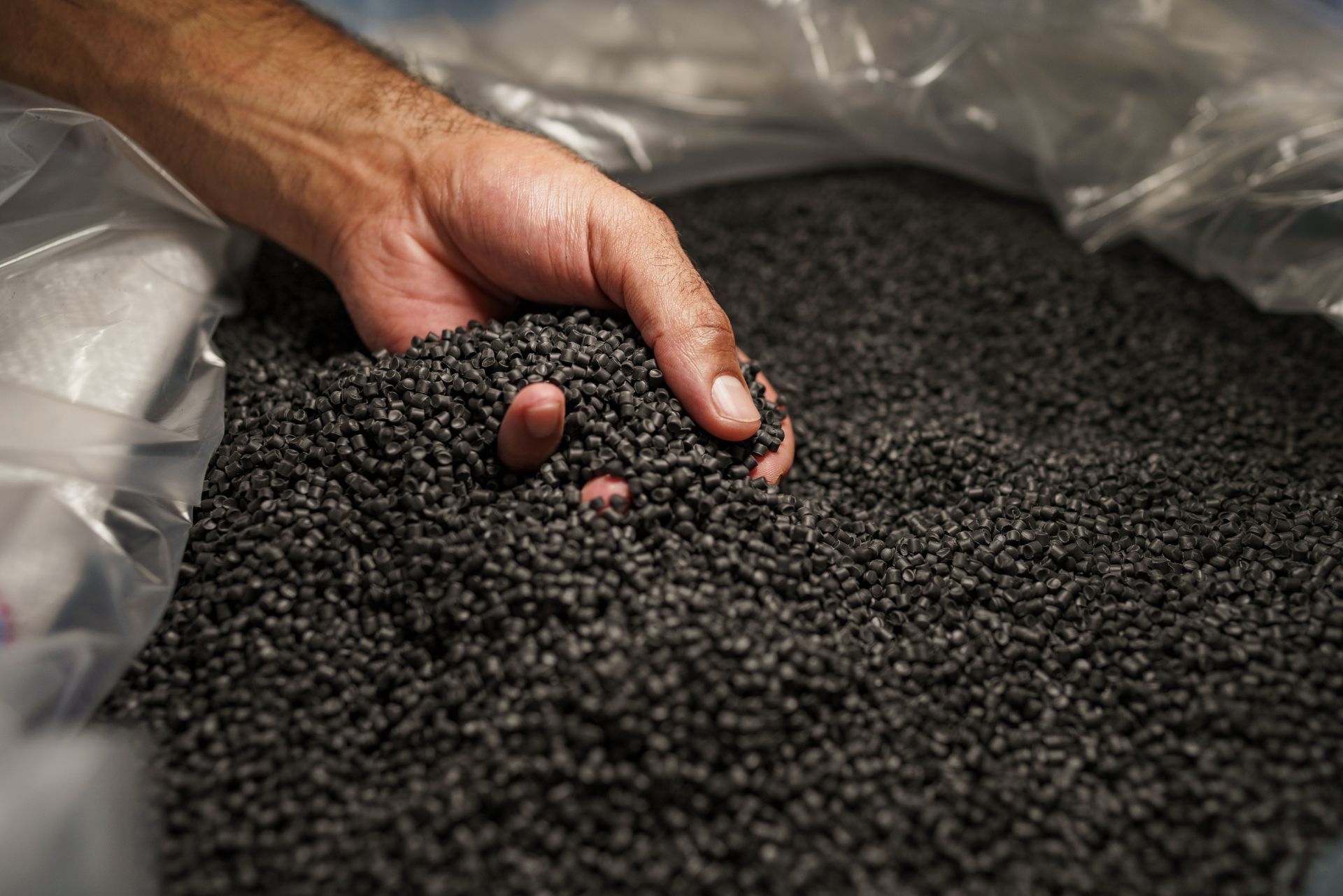
Top 3 Recommended Policies

In the vast landscape of Texas agriculture, fertilizer manufacturing plays a crucial role in ensuring that crops thrive and yield bountiful harvests. However, like any industry, it comes with its own set of risks and challenges. For manufacturers in this sector, having the right insurance coverage is not just a necessity; it’s a lifeline. This article delves into the essential aspects of Texas fertilizer manufacturer insurance, providing insights that every business owner should consider.
Understanding the Risks in Fertilizer Manufacturing
The fertilizer manufacturing industry is fraught with unique risks that can jeopardize both operations and financial stability. Understanding these risks is the first step in securing appropriate insurance coverage.
Operational Hazards
Fertilizer manufacturing involves the handling of various chemicals and materials, which can pose significant operational hazards. The processes may include mixing, storing, and distributing potentially hazardous substances. Accidents can lead to spills, explosions, or chemical reactions, resulting in not only property damage but also severe injuries to employees.
Moreover, machinery used in the production process can malfunction or cause injuries if not properly maintained. Regular safety checks and employee training are crucial, but they are not foolproof. This is where insurance becomes vital in mitigating the financial impact of such incidents. In addition to standard safety protocols, companies are increasingly adopting advanced technologies such as real-time monitoring systems and automated machinery to minimize human error and enhance workplace safety. These innovations not only help in reducing accidents but also demonstrate a commitment to safety that can positively influence insurance premiums.
Environmental Concerns
Environmental liabilities are another major consideration for fertilizer manufacturers. The production and application of fertilizers can lead to soil and water contamination. If a manufacturer is found responsible for environmental damage, the costs associated with cleanup and legal liabilities can be astronomical.
Regulatory compliance is also a critical aspect of the industry. Texas has specific environmental regulations that manufacturers must adhere to. Failure to comply can lead to fines and sanctions, further emphasizing the need for robust insurance coverage that includes environmental liability. Furthermore, the growing public awareness and concern for sustainable practices mean that companies must not only comply with existing regulations but also proactively engage in environmentally friendly practices. This could involve investing in sustainable sourcing of raw materials, implementing waste reduction strategies, and exploring alternative, less harmful fertilizers, all of which can enhance a company's reputation while potentially reducing their insurance risks.
Market Fluctuations
The agricultural market is notoriously volatile, influenced by factors such as weather conditions, crop prices, and global demand. These fluctuations can impact the demand for fertilizers, leading to potential revenue losses for manufacturers. Insurance can provide financial protection against these market uncertainties, helping businesses remain afloat during tough times.
In addition to traditional insurance products, some manufacturers are exploring innovative financial instruments such as crop insurance and weather derivatives to hedge against market risks. These tools can provide a safety net during adverse conditions, ensuring that manufacturers can maintain production levels even when the market is not favorable. Moreover, by diversifying their product offerings and exploring new markets, companies can reduce their dependency on any single revenue stream, thus creating a more resilient business model that can better withstand the pressures of market fluctuations.

Types of Insurance Coverage for Fertilizer Manufacturers
Given the diverse risks associated with fertilizer manufacturing, a one-size-fits-all insurance policy is rarely sufficient. Instead, manufacturers should consider a tailored insurance package that addresses their specific needs. This approach not only protects against common risks but also aligns with the unique operational challenges faced by the industry, such as regulatory compliance and environmental concerns.
General Liability Insurance
General liability insurance is fundamental for any business, including fertilizer manufacturers. This type of insurance covers third-party claims for bodily injury, property damage, and personal injury. For instance, if a visitor to the facility is injured due to unsafe conditions, general liability insurance can help cover medical expenses and legal fees. It also extends to cover incidents that may occur off-site, such as damage caused by fertilizer application on a client's property.
Additionally, this coverage can protect against claims resulting from product defects or damages caused by the fertilizer once it has been sold and applied. Given the potential for significant claims in this industry, general liability insurance is a critical component of any manufacturer’s risk management strategy. Manufacturers should also be aware of the importance of maintaining proper documentation and safety protocols, as these can play a crucial role in mitigating claims and demonstrating due diligence in the event of a lawsuit.
Property Insurance
Property insurance protects the physical assets of a fertilizer manufacturing business, including buildings, machinery, and inventory. In the event of a fire, flood, or other disasters, property insurance can help cover the repair or replacement costs, ensuring that operations can resume as quickly as possible. This is particularly vital in an industry where the production process is heavily reliant on specialized equipment and raw materials, which can be costly to replace.
In Texas, where natural disasters such as hurricanes and tornadoes can occur, having comprehensive property insurance is essential. Manufacturers should also consider business interruption insurance as part of their property coverage, which can provide compensation for lost income during periods of downtime. Furthermore, it is advisable for manufacturers to regularly assess their property coverage limits to ensure they are adequately protected against inflation and rising replacement costs, which can significantly impact their financial stability in the event of a loss.
Workers' Compensation Insurance
Given the hazardous nature of fertilizer manufacturing, workers' compensation insurance is not just a legal requirement in Texas; it’s a moral obligation. This insurance provides coverage for medical expenses and lost wages for employees who are injured on the job. The manufacturing process often involves handling toxic substances and operating heavy machinery, which increases the risk of workplace accidents. Therefore, having a robust workers' compensation policy is crucial for safeguarding the workforce.
In addition to protecting employees, workers' compensation insurance can also shield the business from lawsuits related to workplace injuries. By ensuring that employees are covered, manufacturers can foster a safer work environment and promote employee well-being. Furthermore, investing in safety training and preventive measures can not only reduce the likelihood of accidents but may also lead to lower insurance premiums over time, creating a win-win situation for both employees and employers. Regular safety audits and employee feedback can help identify potential hazards and improve overall workplace safety standards, ultimately contributing to a more productive and engaged workforce.
Specialized Insurance Options
Beyond the standard insurance coverages, fertilizer manufacturers may benefit from specialized insurance options tailored to the unique challenges of the industry.
Environmental Liability Insurance
As mentioned earlier, environmental concerns are significant for fertilizer manufacturers. Environmental liability insurance is designed to cover costs associated with pollution incidents, including cleanup costs, legal fees, and fines. This type of insurance is crucial for protecting against the financial repercussions of environmental accidents.
Manufacturers should carefully assess their operations and potential environmental risks to determine the appropriate level of coverage. This insurance can provide peace of mind, knowing that the business is protected against unforeseen environmental liabilities.
Product Liability Insurance
Product liability insurance is particularly important for fertilizer manufacturers, as it covers claims related to the safety and efficacy of the products sold. If a customer experiences damage or loss due to a defective fertilizer product, this insurance can help cover legal costs and settlements.
Given the potential for significant claims in the agricultural sector, product liability insurance is an essential safeguard for manufacturers. It not only protects the business financially but also helps maintain a positive reputation in the market.
Commercial Auto Insurance
For fertilizer manufacturers that operate vehicles for transportation, commercial auto insurance is a must. This coverage protects against accidents involving company vehicles, including trucks used for delivering products to customers.
In Texas, where long distances between agricultural regions can be common, having adequate commercial auto insurance is vital. This insurance can cover damages to vehicles, medical expenses for injuries, and liability for accidents involving third parties.
Choosing the Right Insurance Provider
Selecting the right insurance provider is a critical step in ensuring comprehensive coverage for a fertilizer manufacturing business. The right provider will not only offer the necessary policies but also understand the unique challenges of the industry.
Assessing Experience and Expertise
When evaluating potential insurance providers, it’s essential to consider their experience and expertise in the agricultural and manufacturing sectors. Providers with a solid understanding of the fertilizer industry will be better equipped to offer tailored coverage options that meet specific needs.
Look for providers that have a track record of working with businesses similar to yours. They should be familiar with the risks associated with fertilizer manufacturing and able to provide insights into effective risk management strategies.
Comparing Coverage Options
Not all insurance policies are created equal. It’s crucial to compare coverage options from multiple providers to ensure that the selected policy offers comprehensive protection. Pay attention to the details of each policy, including coverage limits, exclusions, and deductibles.
Consider working with an insurance broker who specializes in the agricultural sector. Brokers can help navigate the complexities of insurance and find the best options tailored to the specific needs of a fertilizer manufacturer.
Understanding Costs and Premiums
Insurance costs can vary significantly based on several factors, including the size of the business, the level of coverage, and the specific risks involved. Manufacturers should obtain quotes from multiple providers and carefully assess the costs associated with each policy.
While it may be tempting to choose the cheapest option, it’s essential to consider the overall value of the coverage. A slightly higher premium may provide significantly better protection, which can save money in the long run in the event of a claim.
Regulatory Compliance and Insurance Requirements
Fertilizer manufacturers in Texas must adhere to various regulatory requirements, which can impact their insurance needs. Understanding these regulations is crucial for ensuring compliance and selecting appropriate coverage.
State and Federal Regulations
Texas has specific regulations governing the manufacturing, storage, and distribution of fertilizers. These regulations are enforced by agencies such as the Texas Department of Agriculture (TDA) and the Environmental Protection Agency (EPA). Manufacturers must stay informed about these regulations to ensure compliance and avoid penalties.
Insurance providers may also require proof of compliance with state and federal regulations as a condition of coverage. This underscores the importance of maintaining accurate records and staying up-to-date with regulatory changes.
Insurance as a Compliance Tool
Insurance can serve as a valuable tool for ensuring compliance with regulatory requirements. For instance, having environmental liability insurance can demonstrate a commitment to responsible manufacturing practices and environmental stewardship.
Additionally, some insurance policies may include risk management resources that can help manufacturers identify potential compliance issues and implement best practices. This proactive approach can not only reduce risks but also enhance the overall reputation of the business.
The Claims Process: What to Expect
Understanding the claims process is essential for any fertilizer manufacturer. Knowing what to expect can help streamline the process and ensure that claims are handled efficiently.
Reporting a Claim
In the event of an incident, the first step is to report the claim to the insurance provider as soon as possible. Most providers have specific procedures for reporting claims, which may include filling out forms and providing documentation related to the incident.
Timely reporting is crucial, as delays can impact the outcome of the claim. Manufacturers should keep detailed records of any incidents, including photographs, witness statements, and relevant documentation to support the claim.
Claims Investigation
Once a claim is reported, the insurance provider will initiate an investigation to assess the validity of the claim. This may involve reviewing documentation, interviewing witnesses, and inspecting the site of the incident.
Cooperation during this phase is essential. Manufacturers should be prepared to provide any requested information and work closely with the insurance adjuster to facilitate a thorough investigation.
Claim Resolution
After the investigation is complete, the insurance provider will determine whether the claim is valid and the extent of coverage. Manufacturers will receive a decision regarding the claim, which may include a payout for damages or a denial based on policy exclusions.
In the event of a denial, manufacturers have the right to appeal the decision. Understanding the appeals process and having documentation ready can be helpful if a claim is contested.
Best Practices for Risk Management
While insurance is a vital component of risk management, proactive measures can further reduce risks and enhance safety in fertilizer manufacturing.
Employee Training and Safety Protocols
Investing in employee training is one of the most effective ways to minimize workplace accidents. Regular training sessions should cover safety protocols, proper handling of hazardous materials, and emergency response procedures.
Establishing a culture of safety within the organization can empower employees to prioritize safety and report potential hazards. This proactive approach can significantly reduce the likelihood of accidents and injuries.
Regular Maintenance and Inspections
Routine maintenance of machinery and equipment is essential for preventing breakdowns and accidents. Implementing a regular inspection schedule can help identify potential issues before they escalate into serious problems.
Additionally, maintaining accurate records of maintenance activities can be beneficial for both operational efficiency and insurance purposes. In the event of a claim, having documentation of regular maintenance can demonstrate due diligence and responsibility.
Emergency Preparedness Plans
Every fertilizer manufacturer should have a comprehensive emergency preparedness plan in place. This plan should outline procedures for responding to various emergencies, including chemical spills, fires, and natural disasters.
Conducting regular drills and training employees on emergency protocols can ensure that everyone knows their roles in the event of a crisis. A well-prepared workforce can significantly reduce the impact of emergencies and enhance overall safety.

Conclusion
In the dynamic world of fertilizer manufacturing, having the right insurance coverage is essential for protecting against the myriad of risks that businesses face. From general liability and property insurance to specialized coverage options, understanding the various types of insurance available can help manufacturers safeguard their operations and financial stability.
Moreover, staying informed about regulatory compliance and implementing best practices for risk management can further enhance safety and reduce potential liabilities. By taking a proactive approach to insurance and risk management, Texas fertilizer manufacturers can position themselves for success in a competitive industry.
Ultimately, the right insurance provider can make all the difference. By choosing a knowledgeable and experienced partner, manufacturers can ensure that they have the coverage they need to thrive in the ever-evolving agricultural landscape.
Contact Us

